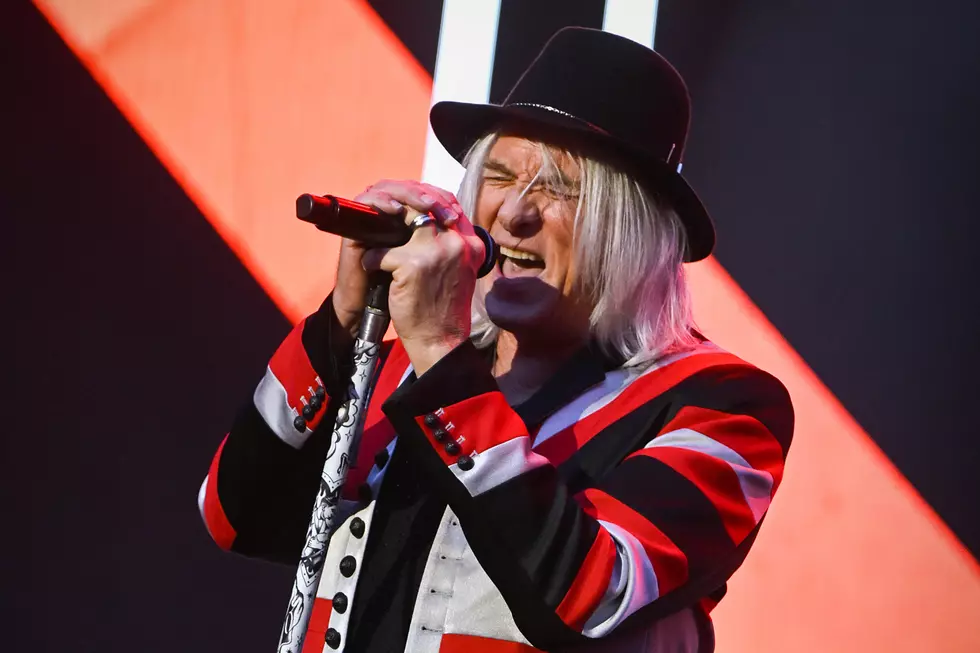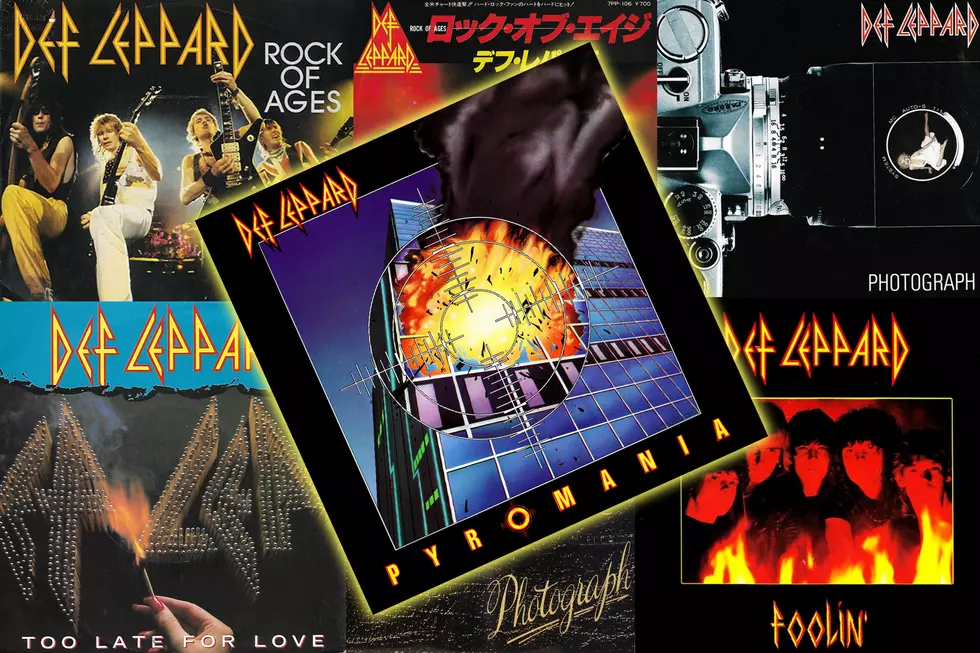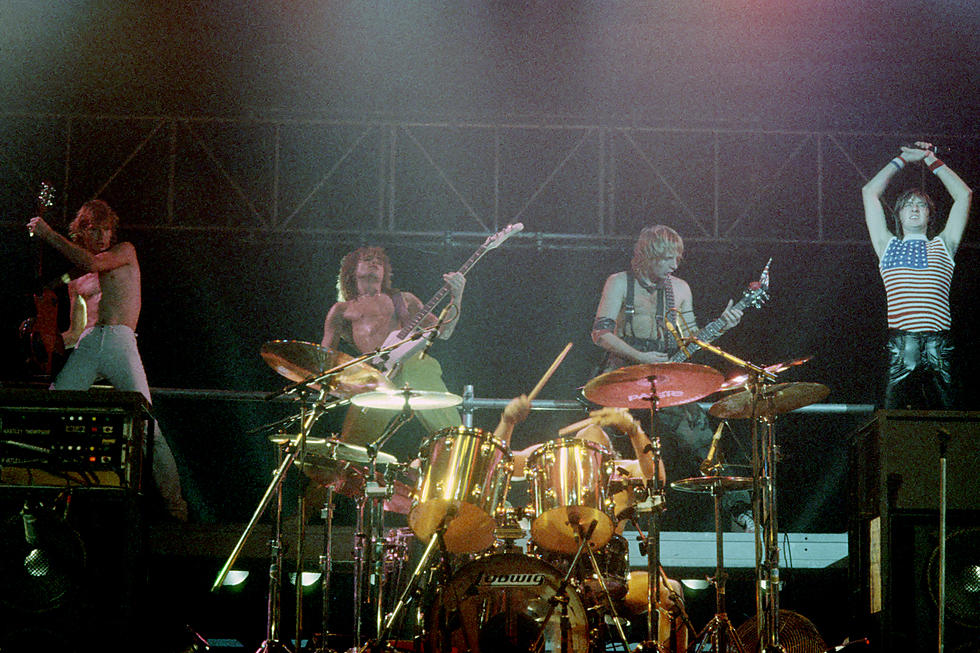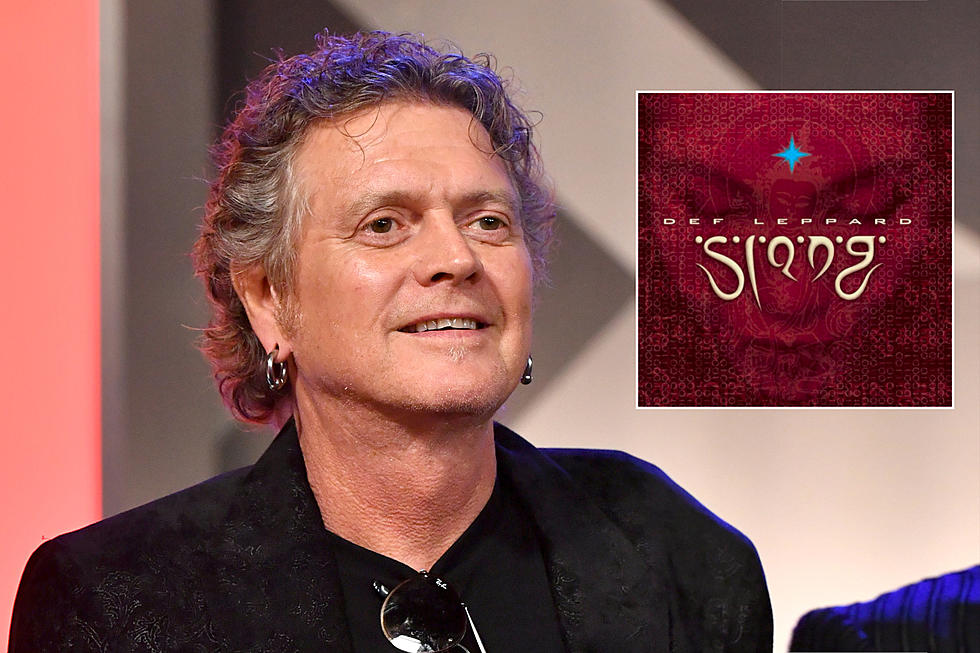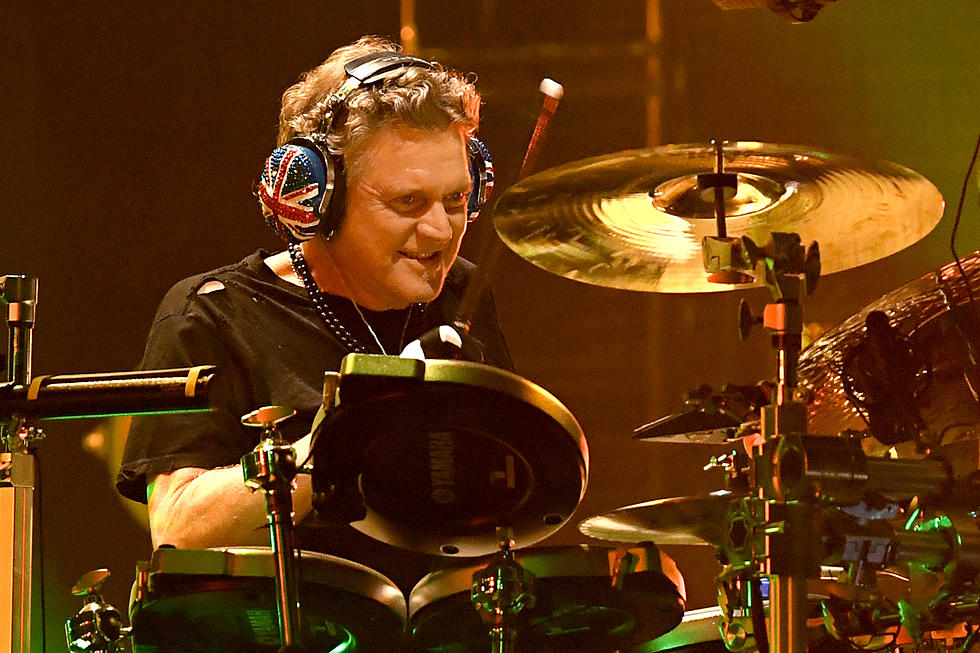Def Leppard’s Rick Allen Looks Back on His Triumphant Return After Losing An Arm
When Def Leppard drummer Rick Allen strode on stage for the band's appearance at the Monsters of Rock Festival at the Castle Donington Raceway in Derbyshire, U.K. on Aug. 16, 1986, it was more than just an opportunity to remind fans that the band was still going after toiling for years on the follow-up to 1983's 'Pyromania' -- the show was also an incredibly high-profile way for Allen to prove that against all odds, he'd triumphed over a horrific injury that nearly cost him his career.
On Dec. 31, 1984, Allen wrecked his car while speeding in the English countryside, and the impact -- along with an improperly fastened seat belt -- severed his left arm when he was ejected in the crash. Although doctors initially attempted to re-attach the arm, they were ultimately forced to amputate, and for a time, Allen's badly broken right arm seemed like it might suffer the same fate. Facing a long period of physical rehab and the very real possibility that he'd have to give up his seat in the band, he fell into despair -- but only briefly.
"In order to keep me from sliding down the bed they put this huge piece of foam at the bottom of the bed, which I could sort of press my feet on and push myself up if I needed to," Allen later recalled. "After listening to music for a few days, I realized I could still play quite a lot of the parts from some of my favorite songs just using my feet. I think that’s one of the things that really helped me is I didn’t give myself very much down time. I never gave myself any sort of time to ‘recover.’ From a mental point of view, I thought it was because I threw myself straight back into work again. And from a work point of view, yeah, I was proving to the rest of the guys in the band that I could do it."
With the help of Status Quo drummer Jeff Rich, Allen devised a new, electronic-assisted drum kit -- one that relied on traditional components as well as a series of foot pedals that allowed him to refashion the pocket he'd once used two arms to create. Even with that impressive technology at his disposal, however, he still needed to alter his playing style; as he later explained to Ultimate Classic Rock, the new approach to his instrument made him a different drummer. "[It's] a little more deliberate. My left leg is not as accurate as my left hand, but over the years, the learning curve has pushed me in a direction that is really cool," he noted. "I think these days, what I’ve really emphasized is celebrating my uniqueness and the fact that I can do things that other people can’t necessarily do."
Over time, Allen came to see the loss of his arm as the impetus for an emotional transformation as well. "At first I used to stay in and read, scared of going out and seeing people I didn't know," he told Q in 1988. "Now I forget I've only got one arm. You realize one or two people are looking at you. When they get over it, then I'm fine. I've managed to conquer most things I could do before -- quite recently, I've started jetskiing again! But at first it was the small, obvious things, like trying to tie your shoelaces. Dressing yourself takes about five minutes longer."
While Allen convalesced, Def Leppard knuckled down on the anguished recording process behind their next album, 'Hysteria.' Destined not to arrive in stores until August of 1987, the new record had already been through several rounds of recording, including early aborted sessions with producer Jim Steinman, who stepped in after the sonic architect of 'Pyromania,' producer 'Mutt' Lange, bowed out. With Lange back behind the boards, progress was still slow and arduous -- but as Allen sees it now, the agonizing grind of crafting 'Hysteria' had the side effect of leaving all members of the band on a level playing field.
"It was really scrutinized to the point that every single beat on the record was accounted for," Allen told MusicRadar. "It was pretty scary, because there were times when I was like, ‘I don’t know whether I can do this." But by the same token, he added that he'd sometimes find singer Joe Elliott close to shedding panicked tears of frustration between takes. "We all felt that way. You felt inadequate because you weren't sure if you could deliver what Mutt was asking you to deliver."
In the midst of all this, the band prepared its return to the stage. According to Q, they played some warm-up shows in the summer of 1985, at first opting to augment Allen with Jeff Rich. "But," notes the article, "after Rich arrived 40 minutes late for their show in Ballybunion, Eire, since nobody had missed him, all agreed that Rick was perfectly capable of playing on his own."
Of course, there's a huge difference between agreeing you can do something and actually doing it on stage in front of thousands of people, while sharing a bill with Ozzy Osbourne, Scorpions, and Motorhead. Allen was petrified, and he doesn't mind admitting it now. "Donington is a crossroads in my life," he told MusicRadar. "That was where it all changed for me. That was really scary. I didn't think I could pull it off. But to feel the warmth of a crowd like that, just feeling the sense that they wanted me to succeed and feeling that encouragement was just incredible. What a moment."
Fittingly, the band opened its 11-song set with the 'Pyromania' track 'Stagefright,' but from the moment the lights shone down on Def Leppard, the crowd let them -- and Allen -- know that their fans were still very much in their corner. When Elliott introduced Allen during their show-closing cover of Creedence Clearwater Revival's 'Travelin' Band,' the audience's ovation (which you can hear in the clip embedded at the top of this post) was deafening.
A year later, those fans had something extra to cheer about when 'Hysteria' finally arrived, beginning a period of utter chart dominance for the band that saw the record spinning off multiple smash hit singles and selling millions of copies along the way. But before they could conquer the world, Allen had to overcome his loss -- and at Monsters of Rock, he delivered irrefutable proof that he refused to be stopped by personal tragedy.
More From Ultimate Classic Rock
